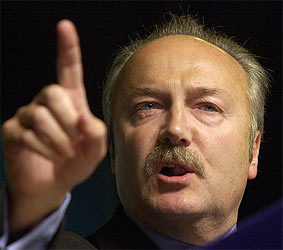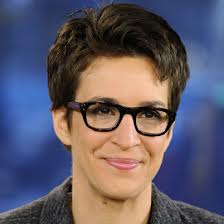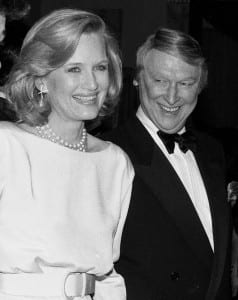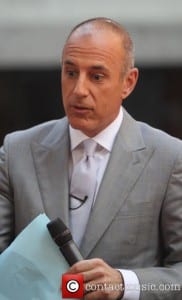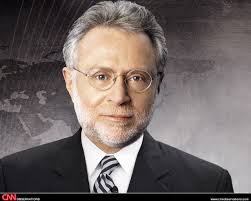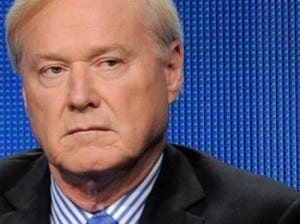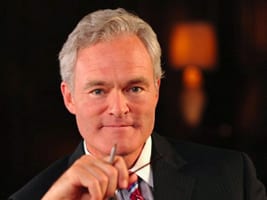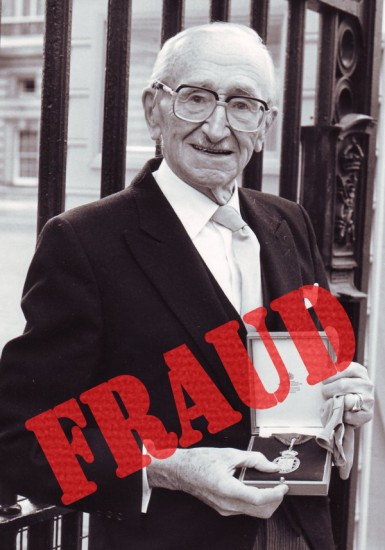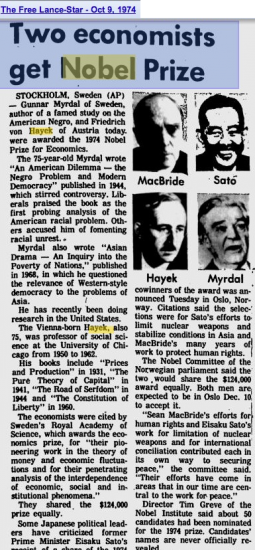UPDATE: Accusations Continue, But Still No Evidence of a Syrian Military Gas Attack

Children supposedly killed by gas canisters fired by Syrian army batteries. The proof remains elusive and many details point to a false flag event mounted by the rebels themselves with help from Western intel.
As accusations and posturing continue on the Western media, blaming the Syrian government for the crimes stemming from the Syrian civil war, the Obama administration solemnly and theatrically (it’s all theater & p.r., after all) begins once again to rattle the sabre indicating the high probability of heavy American involvement—this time in the open since the US and Israel have been secretly involved in the toppling of the Assad regime for years, perhaps over a decade. Here’s some dissenting voices and their arguments. —Eds
what’s left, edited by By Stephen Gowans
The US and its accomplices seeking UN cover for expanded war in the Middle East.
Two days after a possible chemical weapons attack in Syria we know that:
• The United States does not have “conclusive evidence that the (Syrian) government was behind poison-gas attacks.” [Wall Street Journal, 1]
• “Neither the United States nor European countries…have a ‘smoking gun’ proving that Mr. Assad’s troops used chemical weapons in the attack.” [New York Times, 2]
• The State Department doesn’t know “If these reports are true.” [New York Times, 3]
• The White House is trying to “ascertain the facts.” [Wall Street Journal, 4]
All the same, the absence of evidence hasn’t stopped the Pentagon “from updating target lists for possible airstrikes on a range of Syrian government and military installations”; [5] hasn’t stopped Britain and France from accusing the Syrian government of carrying out an atrocity; and hasn’t diminished the enthusiasm of newspaper editors for declaring Assad guilty beyond a shadow of a doubt.
“There is no doubt,” intoned the editors of one newspaper–with an omniscience denied to lesser mortals, including, it seems, US officials who are still trying “to ascertain the facts”—“that chemical weapons were used” and that Assad “committed the atrocity.” [6]
In a editorial, The Guardian (supposedly a liberal newspaper) avers that the Syrian military “is the only combatant with the capability to use chemical weapons on this scale.” Yet The Wall Street Journal’s Margaret Coker and Christopher Rhoads report that “Islamist rebel brigades have several times been reported to have gained control of stockpiles of chemicals, including sarin.” [7]
That might account for why the White House admitted two months ago that while it believed chemical weapons had been used in Syria, it has no evidence to indicate “who was responsible for (their) dissemination.” [8]
And given that the US president claimed chemical weapons use by the Syrian military would be a red line, the rebels have a motivation to stage a sarin attack and blame it on government forces to bring the United States into the conflict more forcefully on their side. For the Syrian government, however, the calculus is entirely different. Using chemical weapons would simply hand the United States a pretext to more muscularly intervene in Syria’s internal affairs. Since this is decidedly against Damascus’s interests, we should be skeptical of any claim that the Syrian government is defying Obama’s red line.
Another reason for skepticism: Why use chemical weapons to produce the limited number of casualties that have been attributed to chemical agents use in Syria, when conventional weapons can just as easily produce casualties of the same magnitude—without proffering an excuse to Western countries to launch air strikes? Last month, the New York Times’ Rick Gladstone reported on a study which “found evidence of crudely manufactured sarin, a nerve agent, delivered via an unguided projectile with a crude explosive charge — not the sort of munitions stockpiled by the Syrian military.” [9]
So, no, the Syrian military is not the only combatant capable of using chemical weapons in Syria. But unlike the rebels, it has no motive to do so, and compelling reasons not to. That’s not to say that chemical weapons were used, rebel forces used them, and the Syrian military did not. The evidence is murky. But that’s the point. The rush to blame the Syrian military, and to update target lists for possible airstrikes, on the basis of no evidence, smacks of political motivation.
Clearly, the United States, France and Britain want public opinion on their side for stepped up intervention in Syria. They’ve decided to declare Assad and the Syrian military guilty of using a weapon of mass destruction. But the conviction of guilt, as is evident through the statements of politicians and reporting of newspapers, rests on no sound evidentiary basis—indeed, on no evidence at all.
Stephen Gowans is one of Canada’s leading left writers and political analysts. He is founding editor of What’s Left.
1. Adam Entous, Julian E. Barnes and Inti Landauro, “U.S. weighs plans to punish Assad”, The Wall Street Journal, August 22, 2013
2 Mark Landler, Mark Mazzetti and Alissa J. Rubin, “Obama officials weigh response to Syria assault”, The New York Times, August 22, 2013
3. Landler, Mazzetti and Rubin.
4. Entous, Barnes and Landauro.
5. Entous, Barnes and Landauro.
6. “Syria: chemical weapons with impunity”, The Guardian, August 22, 2013.
7. Margaret Coker and Christopher Rhoads, “Chemical agents reflect brutal tactics in Syria”, The Wall Street Journal, August 22, 2013
8. Statement by Deputy National Security Advisor for Strategic Communications Ben Rhodes on Syrian Chemical Weapons Use, June 13, 2013, http://www.whitehouse.gov/the-press-office/2013/06/13/statement-deputy-national-security-advisor-strategic-communications-ben-
9. Rick Gladstone, “Russia says study suggests Syria rebels used sarin”, The New York Times, July 9, 2013
•••••
“If there’s been any use of nerve gas, it’s the rebels that used it…If there has been use of chemical weapons, it was Al Qaeda who used the chemical weapons”, said Respect Party MP for Bradford West, George Galloway.
“Who gave Al Qaeda the chemical weapons? Here’s my theory: Israel gave them the chemical weapons”, Galloway MP added.
Meanwhile, media reports had it that Qatar’s Al Jazeera TV and Reuters news agency published the news of massacre in East Ghouta, Damascus “one day” before the massacre happened.
According to the reports tens of videos were uploaded before foreign-backed terrorists announced and accused the Syrian government of conducting chemical attacks on its own people. Those evidences show the terrorists massacred people, including women and children, then recorded and uploaded the scenes to deceive the world’s public opinion, but they did so hurriedly and gave themselves up.
The question here is why the Syrian government and its army should have committed such a heinous mass murder using chemical weapons when the United Nations inspectors are visiting the country to investigate the use of such weapons?
The foreign-backed terrorists and mercenaries hired by certain regional Arab countries are making up those allegations against the popular government of President Bashar al Assad to invoke a foreign armed intervention in Syria the same as what they did in Libya.
Qatar’s Al Jazeera TV published the news of the alleged chemical weapons attack by the Syrian army, citing unknown activists as its source.
A website funded by foreign-backed terrorists also uploaded videos of the alleged attacks and wrote that “Baath Regime used chemical weapons in East Ghouta, Damascus, Jobar, Ain Tarma, Zamalka, Western Ghouta, Muaddamiyah around 03: 30 am.”
At the same time, one of the well-known pro- terrorists’ Youtube account ‘SHAMSNN’ swiftly uploaded tens of videos between 03: 00 and 04: 00 am, 20 August. The same people behind all these scenarios accused the government of Syria and its army of carrying out chemical attacks on 21 August.
Now, even if the chemical attacks had happened at 03:30 on 20 August, it’s not possible to film the scenes and upload tens of videos of these heinous crimes with the best quality pictures.
Therefore, all the evidence shows is that foreign-backed terrorists perpetrated the crimes, filmed and uploaded the scenes and went to their mouthpieces such as al Jazeera, al-Arabiya, Sky News and Reuters to accuse the Syrian government of a massacre the terrorists did.
Another best evidence of such brutality by the terrorists, who are regularly coming close to their end of life, is that they had gathered innocent civilians including women and children into certain places, killed them by nerve gas and filmed the brutal murder scenes, then they did what they were ordered to accuse the Syrian government.
Syrian Information Minister Omran al-Zoubi highlighted certain countries’ hostile stance towards his country telling the world that a media and political campaign of lies is being circulated by certain Arab and foreign media outlets including al-Jazeera, al-Arabiya, Sky News and others which are involved in the shedding of Syrian blood and supporting terrorism, with the objective of distracting the UN committee of inspectors of its mission to investigate which party to the conflict has used chemical weapons.
“The cries of terrorists and their calls for aid accompany the fact that the Armed Forces are advancing on the ground, and also accompany the fabricated campaign waged by some channels in desperate bid to imbue false morale in the armed terrorist groups,” he said.
Omran al-Zoubi described the support by some Arabs and the so-called Arab League for these allegations as ridiculous, naïve and illogical.
SELECT COMMENT
US Political Motives, not Facts
BY S. GOWANS
The United States is once again, without evidence, accusing Syrian forces of using chemical weapons.
A senior White House official spoke of “strong indications” of “a chemical weapons attack—clearly by the (Syrian) government,” but added “we need to do our due diligence and get all the facts.” [1] In other words, we haven’t got the facts, but that won’t stand in the way of our making the accusation.
odajdsjdjkw
The New York Times called the accusation into question with this headline: Images of Death in Syria, but No Proof of Chemical Attack. [2] The newspaper went on to say that according to experts, videos of the attack’s aftermath “did not prove the use of chemical weapons.” It added that,
Gwyn Winfield, editor of CBRNe World, a journal that covers unconventional weapons, said that the medics would most likely have been sickened by exposure to so many people dosed with chemical weapons—a phenomenon not seen in the videos. [3]
The Syrian military vehemently denies that it used chemical weapons. That, of course, doesn’t prove its innocence. The Syrians could be trying to cover up to avoid a backlash. But if they’re concerned about a backlash, why use the weapons at all?
It makes no sense to use gas, a weapon of mass destruction, to kill only as many people as can be killed readily with conventional weapons [4], while handing the United States, France and Britain—countries with histories of finding excuses to topple economically nationalist governments—a pretext to step up their intervention in Syria’s internal affairs.
The White House’s contention that Syrian forces are using chemical weapons but “keeping strikes small…possibly to avoid mass casualties that could spark a stronger international response” [5] doesn’t add up. It’s like accusing a country of using nuclear weapons, but keeping casualties low to avoid eliciting a punitive international response. If your objective is few casualties and no strong international response, why use weapons that produce neither?
The White House set the standard earlier this year for hurling baseless accusations in connection with Syria when it announced that it had concluded that the Syrian government had used chemical weapons, but admitted it had no proof.
On June 13, Deputy US National Security Advisor for Strategic Communications Ben Rhodes announced that: “Following a deliberative review, our intelligence community assesses that the Assad regime has used chemical weapons, including the nerve agent sarin, on a small scale against the opposition multiple times in the last year.” [6]
Further down in the statement Rhodes admitted that the evidence the United States had collected “does not tell us how or where the individuals were exposed or who was responsible for the dissemination (emphasis added).” [7]
Read that again: The White House’s evidence “does not tell us…who was responsible.”
Contrast the rush to find Damascus guilty on the basis of no evidence with the White House’s ridiculous refusal to conclude that the Egyptian military carried out a coup d’etat, despite overwhelming and conspicuous evidence it did. For Washington, it seems, facts are facts, and conclusions are conclusions, but they exist in separate, unconnected, worlds.
So why is the United States baselessly accusing the Syrian military of using chemical weapons? For the same reason it calls the Syrian government the Assad regime. Both serve to create a demon. And creating demons, as Michael Parenti has pointed out, gives you license to intervene. (8)
In a letter to a US Congressman, the United States’ top military officer, General Martin Dempsey, acknowledged that the war in Syria is fuelled by “underlying and historic ethnic, religious and tribal issues’—a substantially different, and more realistic, take on the war than the simple-minded pro-democracy-rebels-fighting- against-dictatorship twaddle favored by the manufacturers of public opinion. Dempsey went on to say that the Pentagon could intervene in Syria to tip the balance in the war, but that there are no opposition groups “ready to promote their interests and ours.” [9]
Since it’s absurd to say that there are no opposition groups ready to promote their own interests (what group doesn’t promote its own interests as its members understand them?) it can only be concluded that what Dempsey really meant was that there are no groups that see their interests as consonant with those of the United States, and until Washington can create such a group and the group has broad public support, the Pentagon will wait to intervene more forcefully.
Until then, we can expect that Washington will continue to demonize the Syrian government and its leader—even if it has to draw conclusions from thin air to do so.
Stephen Gowans is one of Canada’s foremost leftist analysts of current events.
1. Sam Dagher, Farnaz Fassihi, and Adam Entous, “U.S. Suspects Syria Used Gas,” The Wall Street Journal, August 21, 2013
2. Ben Hubbard and Hwaida Saad, “Images of Death in Syria, but No Proof of Chemical Attack,” The New York Times, August 21, 2013
3. Hubbard and Saad.
4. Estimates range from “scores” to 130 to over 1,000 people killed in the latest incident, depending on the source.
5. Dagher, Fassihi and Entous.
6. Statement by Deputy National Security Advisor for Strategic Communications Ben Rhodes on Syrian Chemical Weapons Use, June 13, 2013, http://www.whitehouse.gov/the-press-office/2013/06/13/statement-deputy-national-security-advisor-strategic-communications-ben-
7. Rhodes.
8. Paul Weinberg, “The Face of Imperialism: An interview with Michael Parenti”, rabble.ca, November 3, 2011, http://rabble.ca/news/2011/11/face-imperialism-interview-michael-parenti. Parenti said, “Once you convince the American public there are demons, you have the license to bomb their people.”
9. Thom Shanker, “General Says Syrian Rebels Aren’t Ready to Take Power,” The New York Times, August 21, 2013
ADDENDUM
to the Syrian government, as Syria imports its gas masks from Russia.
She wondered if this portended an imminent False Flag chemical weapons attack, whereby NATO would deploy
A major chemical attack allegedly occurred in Syria, the day before yesterday, killing hundreds in a Damascus
Dry up the tears for that golden period in US Journalism that never was
From our archives—
Patrice Greanville (First posted 9/1/07)

CBS top honcho Les Moonves (net worth $300MM) and Katie Couric (net worth: 60MM). Moonves currently makes $70MM a year. Both are leading members of the nation’s glitzy “media bourgeoisie.”
There’s a widespread assumption in leftwing circles that increasing concentration of media ownership is, ipso facto, the main if not sole culprit for the appalling state of mainstream journalism in our time. Surely there’s a lot to decry, but is media consolidation and deregulation the cause for this calamity? And if the American media have indeed fallen from grace, as it is claimed, where in time do we locate this mythical “golden period” when the media establishment did measure up to its social mandate?
That the American media are palpably in what we might call today a pathetic and degenerate state, if not a free fall toward irrelevancy, should be obvious to thoughtful observers. This reflects the larger forces at work: As US capitalist democracy and general culture evolve due to their inexorable dynamic into ever more predatory and cynical iterations (Bush is more a symptom of the disease than its cause), so do the “relative” quality of the nation’s formal institutions, whether they be at the political center or adjunct, such as the media. But I think that attributing the obscenely bad performance of the corporate media—and television in particular—to concentration is somewhat erroneous. I realize this is by now, mainly thanks to the work of Ben Bagdikian and others, an article of faith on the liberal left. The usual mantra is “It’s the media concentration, stupid!”. But in order for me to believe that claim, that a few decades ago, when diversity of ownership was more widespread than now, everything was honkey dorey in Ed Murrow heaven, you’d have to show me first a period when the American media was substantively better than today, and that, friends, is hard to do, no matter how many media icons you roll out to worship.
[pullquote]
We regularly rerun articles of compelling and lasting interest. We wish the truths told in such articles had become obsolete, had been retired by social change and good leadership. Unfortunately that rarely happens. This is one of such essays.
[/pullquote]
Hard if you take the historical record as the arbiter of truth and not the intramural chatter of the profession, which far too many critics seem to have swallowed without examining its self-serving distortions. For at all times the performance of a mass media system must be measured and graded according to output, and this output has been consistently deplorable, for at least 150 years, and shamefully so since the era of supposedly “professional journalism” began in the 1920s. Shall we review this for a moment? (I’m speaking here of mass media, not about the dissenters’ publications, which America has always had.) The question we must ask is: when confronted with severe crises of democracy and criminality in foreign policy, what did the press do?
Consider a few turning points in American history. Let’s take first the infamous “Palmer Raids” in the first quarter of the 20th century. In the wake of the birth of the Soviet Union and the disaster of the First World War, a great upsurge in worker agitation ensued which struck fear in the heart of many ruling classes around the world. The response of the US ruling class, always paranoid to a fault, was swift and unsurprising. As is customary, the target was the “radical movement” and its alleged threat “to the nation” (i.e., big propertied interests). In an article in Forum magazine in February 1920, aptly entitled “The Case Against the Reds,” Attorney General A. Mitchell Palmer held forth in near-Apocalyptic terms:
“Like a prairie fire the blaze of revolution was sweeping over every American institution of law and order…It was eating its way into the homes of the American workman, its sharp tongues of revolutionary heat were licking the altars of the churches, leaping into the belfry of the school bell, crawling into the sacred corners of American homes seeking to replace marriage vows with libertine laws, burning up the foundations of society.”
Under Palmer’s direction, and the direct supervision of J.Edgar Hoover, one of the most sordid hypocrites in American history, waves of spies, paid informers, and agent provocateurs were sent into unions, self-help organizations for the foreign born, and leftist groups of many stripes. A special Justice Department publicity bureau was commissioned to concoct and dissseminate stories around the country about a Moscow-directed plot to overthrow the government in Washington. As James Aronson has noted in his classic The Press and the Cold War, press releases were issued daily with inflammatory and highly tendentious headlines, such as, “US Attorney General Warns Nation Against Bolshevik Menace.” Inevitably, once the “radical enemy” had been properly softened through character assasination (a favorite trick), the government’s henchmen moved in to finish the job. On November 7, 1919, as a dress rehearsal, hundreds of foreign-born citizens were arrested throughout the country, many at meetings commemorating the second anniversary of the Russian Revolution. A few months later, on January 2, 1920, raids were carried out in 20 cities with the assistance of state and local police. More than 1,000 were arrested just in New York City, and 400 in Boston, where, as Aronson again notes, the prisoners were marched in chains through the streets. Similar scenes were recorded in many other cities, factories, and communities.
[pullquote] In the US all top journalists and media figures, and most certainly top executives and media owners, are multi-millionaires (many, like Oprah, billionaires). Living a privileged, insular existence, they can hardly imagine the world through a lens conducive to sympathising with the travails of ordinary folk. [/pullquote]
Now, this was a blatant unconstitutional abuse of power, for if freedom of speech and political assembly are worthless when you side with an “unpopular” viewpoint or vision, what is the meaning of protected freedom? We don’t need protection or guarantees when we’re safely ensconced in the bosom of the majority opinion, or fully compliant with the approved status quo. Anyone can loudly proclaim his love for apple pie and motherhood and expect zero retribution for such “bravery” in America. So, how did the media behave? This much more owner-diversified media? Did we see furious editorials and scrupulous coverage denouncing such obvious government overreach?
Well, not exactly. Emblematic of the media’s attitude, on January 3, the day after the raids, The New York Times reported the roundup of “2,000 Reds” putatively involved in a “a vast working plot to overthrow the government.” The headline read:
“REDS PLOTTED COUNTRY-WIDE STRIKE–ARRESTS EXCEED 5,000–2,635 HELD.”
By the way, in case you never thought about it, “Reds” is an invidious term calculated to dehumanize radical activists.
On January 5, the American press’ “paper of record” let loose with an even more overt endorsement of the persecution:
When Attorney General Palmer started his so-called “radical raids.” so many newspapers entered into the spirit of that infamous piece of witch-hunting that the reputation of the American press suffered heavily.”
So much for the press’ “superior” performance nine decades ago. Did anything really change since then? Let’s look at the “output”— again.
• Did the press stop “Tailgunner” Joe McCarthy in his tracks when the Republican senator started pulling rabbits out of his hat, which the media, along with many other powerful opinion forming institutions, could have easily done? Nope. He practically had to self-destruct by hubristic overreach before the puppeteers upstairs decided he’d become a liability and threw the switch to cancel his show (mostly because, in search of more headlines and power, the opportunistic senator had begun to insinuate that the Army was crawling with Reds). With a real quality press McCarthy and the whole stinking anticommunist hysteria of the 1950s would not have happened.
• Did the press stand in the way of the “forgotten war,” our cynical imperial war in Korea? Nossirreee. With a real quality press Korea would not have happened.
• Did the press denounce our subversion of legitimate governments and stealthy interventions in the political processes of Iran, Guatemala, Greece and even Italy in the 1940s and early 50s? In Italy and throughout Europe we even left behind an extensive anti-communist terrorist secret network of agents and provocateurs ready to spring to action in any country that tilted too much to the left in the eyes of the Washington overlords (see Operation Gladio). With a real quality press these outrages for which we are still paying would not have happened.
• In the 60s and 70s, did the press stop our cynical and even more murderous imperial war in Vietnam and the rest of Indochina? Did it expose its off-the-charts hypocrisy and immorality? No again. Did the press ever clarify what was really going on in Latin America, notably in Chile (where a democratically elected president was toppled and murdered in 1973), Argentina (where a massive dirty war, from 1975 onward, coordinated with US assistance, took tens of thousands of lives), what the situation really was in Bolivia, Colombia, Uruguay, Brazil, Nicaragua, and El Salvador, to mention just the more notorious examples of criminal meddling by the CIA and US military? And did the press lift a finger to defend or explain the Cuban revolution instead of demonizing it, a practice that remains alive and well to this day? With a real quality press Vietnam and the rest of those crimes would not have happened. (Let’s recall this was the “golden years” of TV journalism, with names such as Murrow, Cronkite and similar press heroes emblazoned on the profession’s escutcheon.)
• In the same postwar period did the press expose—on its own— the shameless and criminal abuses of the great industrial monopolies, drugs, cars, food, etc? No. It took a crusading populist Senator from (of all places) Tennessee (Estes Kefauver) to conduct revealing hearings on these oligopolies (the story was quickly swept aside), and the work of an outsider to the media, Ralph Nader, to blow the whistle on the automotive cartel’s deliberate underperformance.
In more recent times, why didn’t this supposedly “liberal” media stop Ronald Reagan, a man whose political resume reeked with willful prostitution to the plutocracy? Let’s recall that it was the Reagan regime that inaugurated the radical right’s ascension to power, with a cast of necocon malefactors soon to find continued employment in the two Bushes’ administrations—and whose handiwork require no further comment on this blog.
The media did not perform its basic duties in the 1920s, nor in the 1950s, nor in the 1960s, 70s, 80s, 90s, or since the turn of the new century. Yet in earlier years there was far less media ownership concentration. So where is the significant correlation between quality and concentration? Where is this wonderful past, this period when the American press was behaving according to its own glowing mythical best?
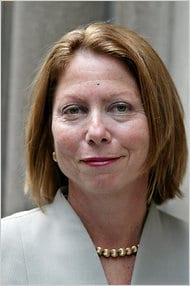
Controversial Jill Abramson, new NYT’s Exec Editor, succeeding Blll Keller. Compensation unknown, but net worth estimated in the millions.
Matters of degree you may say, and I’m not saying that some differences, however small, may not have important consequences in a monster nation of this size and power. One or two degrees of difference may spell life or death for hundreds of thousands or even millions of humans, animals, and other species. True enough. (The same logic applies to differentiate between Democrats and Republicans, for those who like to study quantum particles.) But that’s a different discussion, related to quantitative aspects of social institutions, not qualitative aspects. Perhaps the lesson of this cursory review of the American media record is that many people continue to confuse “numerosity” with true diversity. But as is the case with fractals, you can split an entity into innumerable pieces, and, as long as those pieces carry the same “DNA”, they will stubbornly replicate the same marching values.
Sociology rules: It’s a class question, chump
Since the overwhelming majority of the corporate media—big or small—is perforce beholden to capitalist values and goals, then it’s the resulting sociology of the profession that trumps matters of simple size. As media critic Robert McChesney has pointed out in his intro to Danny Schechter’s classic, The More You Watch, the Less You Know, words that should be taken to heart by J-school students (and faculty):
One of the important functions of the profession of journalism is to make journalists and the public regard issues of ownership and control as unimportant to explaining how the media operate.
And McChesney goes on to elaborate,
[P]rofessional journalism was born almost a century ago precisely during the era that newspaper ownership was consolidating and advertising was becoming the primary means of support. Urged on by the largest publishers, professional journalism was supposed to assure readers that the news could not be influenced by owners or advertisers or the biases of the journalists themselves.
Noble intent, indeed, but what happened? What always happens: the logic of business, the irrepressible dynamic of the economy that owns all and controls all, soon blew away anything exogenous or inimical to the goals of the company or business in general, and in passing created a tacit set of workplace rules that no ambitious journalist concerned about his or her career was bound to disregard for long–or ever. As Ben Bagdikian himself has noted,
…professional journalism internalized the overall political values of the owners and advertisers (nearly identical, anyway), and recognized a decontextualized “neutral” coverage based upon “official sources” as legitimate news.
The “commoditization” of journalists
A commodity is anything that is bought and sold on the market with the sole purpose of making a profit. And when journalists literally sell themselves to their employers, and consciously do their bidding, they commoditize themselves just like any other item, except that the respectable operating phrase here is “pursuing a career.”
Careerism — which is another word for putting self-interest over the public interest—trumps duty every day in America. It’s the “natural” and rarely questioned American script, all the way from the halls of Congress to the nation’s newsrooms. This is not an admirable value among common citizens, but among people entrusted with the well-being of the commwealth, it is nothing short of poisonous. And we see the fruits of this shabby “ethic” everywhere in our social disintegration. For journalists—and media workers in general—are no more exempt from duty to the society they have freely chosen to serve than judges, police, firemen, doctors, emergency room personnel and other critical services professions.
This wholesale corruption of duty in what is arguably one of the most important professions in a free society—to serve as the [educated] eyes of the people in their democratic decisionmaking—is abetted by institutional arrangements and “examples” that easily misguide the young and confuse the citizenry. For the undeniable fact is that, as befits a huge, extremely rich, and complex nation ruled by the market, we have given rise to journalism schools that crank out new media personnel already fully acclimated to the political requirements of the system, and see nothing wrong in cutthroat competition to advance their own personal agendas. Enormous salaries comparable to the obscene pay of professional athletes constitute the lure for perdition. (Katie Couric got a $60 million contract to anchor for CBS, and other stars and “celebrity media people” command similarly stratospheric compensation) are now the rule in the profession’s “pinnacle” —which of course includes the perennially “invisible” top media executives. Are we to expect an understanding or even true sympathy for the travails of the average working stiff from a crowd so alarmingly insulated from their reality? Certainly not. After all, as the old Bolshies used to say, existence conditions consciousness, and not the other way around.
In conclusion, as it relates to overall performance, while concentration in traditional media may matter somewhat by raising still more the “barriers to entry” and stifling the appearance of alternative outlets, it is really secondary to the longstanding and deeply embedded political and social “DNA” of the American press, dominated by a decadent capitalist worldview and an utterly bourgeois way of interpreting events that effectively prevents it from fulfilling its mandate. Someone who certainly knew what the profession was all about had this to say, long ago:
– John Swinton, former Chief of Staff, The New York Times, circa 1880
If anyone can locate the age of American golden journalism, please drop me a line.
ABOUT THE AUTHOR
Note: All net worth figures mentioned in this article are estimates, collated from various sources, including Forbes, Fortune and others.
Are Germany’s Intelligence Agencies and the Stasi Totally Different?
By Stephen Gowans, WHAT’S LEFT
Germany’s chancellor Angela Merkel “has defended German cooperation with the National Security Agency program, called Prism, and rejected any comparison between it and the invasive methods used by the Stasi, the secret police of East Germany’s Communist government.”
“The work of intelligence agencies in democratic states was always vital to the safety of citizens and will remain so in the future,” Merkel said. “For me, there is absolutely no comparison between the Stasi in East Germany and the work of intelligence services in democratic states.” The programs are “two totally different things.” (New York Times, July 11, 2013)
Note that Merkel doesn’t deny that Germany’s intelligence apparatus, in collaboration with the NSA, spies on German citizens—only that its spying is vital for public safety. By implication, East Germany’s snooping was not. She invokes democracy’s halo to justify the police state methods of democratic states (if it’s done by a democracy, it must be good) while drawing a distinction with communist states (if it’s done by a communist state, it must be bad.)
At least Merkel has gone so far as to admit that Germany does what East Germany used to do—spy on its own citizens. Western politicians used to pretend that liberal democracies didn’t do that kind of thing (though there was plenty of public record evidence they did.)
Of course, Merkel can’t say that German secret policing is Stasi-like, at least, not in its intent, because the Stasi has long been held up by anti-communists as a sui generis—a totalitarian monstrosity that could only exist in a communist society. Germany’s surveillance activities, Merkel contends, are on an elevated (democratic) plane; they’re “vital to the safety of citizens.” The Stasi, presumably, concerned itself with baser things.
However, it’s clear that all states are concerned with preventing terrorist bombings, hijackings, assassinations, and so on—terrorist activities which endanger the public and disrupt the smooth functioning of the system. This was as true of the GDR as it is of any other state.
But the definition of public safety can be very wide, and states invariably place an equal sign between “public safety” and “the established order.”
The exodus of young, working-age and skilled East Germans to the West—encouraged by the West German government—threatened the viability of the GDR’s established order, and much of the GDR’s political policing involved measures to stanch the bleeding of human capital.
West Germans who identified with the GDR and were sympathetic to its political project represented a potential fifth column which the West German secret police operated to contain and disrupt.
And yes, there was a West German equivalent to the Stasi. It was built on the foundations of Hitler’s secret police, whose operatives were recruited from the ranks of former Gestapo personnel, and which used informants, buggings and mail openings to spy on, harass and disrupt the activities of people with left-wing political views, just as the Stasi did against people who threatened the viability of the anti-Fascist workers’ state.
In the view of those entrusted with preserving West Germany’s capitalist order within the orbit of US hegemony, communists and GDR-sympathizers were threats to public safety.
The scope of secret police activities is proportional to the technology available and the severity of the threat to be contained and disrupted. The threat posed to East Germany by the larger, richer West Germany and its powerful patron, the United States, was many times greater than the threat the smaller, poorer, East Germany posed to the West—a GDR whose backer, the Soviet Union, could offer fewer resources than the United States could offer West Germany. (Not only was the Soviet Union a less affluent backer, after WWII, it carted away from its occupation zone in Germany anything of value, and East Germany disproportionally bore Germany’s costs of indemnifying the USSR for the latter’s war losses.) Accordingly, the demands on a secret police function in the GDR were much greater.
To West Germans who had no strong leftist leanings, the secret police were invisible, but their existence was always clear and menacing to the country’s communists and militant socialists. The fact that the BfV, West Germany’s political police, was part of a “democratic” state made it no less intrusive and threatening than was the Gestapo to Germans who held the wrong political views.
So, are Germany’s secret police and the Stasi two totally different things, as Merkel contends? Not in kind, but they are in degree—though the difference in degree is not in the direction Merkel would care to acknowledge. The surveillance apparatus of Germany’s unified democratic state has a more intrusive access into the private lives of its citizens than the Stasi ever had or could have had.
Canadian social activist STEPHEN GOWANS is founding editor of What’s Left.
Zero Snuff Thirty
by Joe Giambrone, The Political Film Blog
In a time when people dread the next pseudo-political bullshit-fest that Hollywood poops out…
In an age of war, of genetic engineering, of rising fascism, of the propaganda state…
In a world gone mad with terrorism, covert proxy armies, the reign of billionaires, and Kim Kardashian…
…yet another jingoistic American muscle picture smells like an Oscar.”
I’ve long ago given up on Hollywood providing anything in the neighborhood of a “true” story. I’ve spoken with more than a few screenwriters who feel no obligation toward the actual objective history, or to piecing together what surely happened according to the available data. Breezily they would prefer to toss out the facts in favor of “story.” That’s the self-serving claim, anyway. The reality is that history is always in second position to the “notes” of their superiors, and Hollywood scribes are simply corporate employees. Any studio executive or producer in the chain can rewrite history at their own whim. That is the reality of the American movie business, which few would dispute.
Enter Osama Bin Laden (boo, hiss!). But, the first trailers for the Zero Dark Thirty snuff film actually omitted showing the dark lord bad guy, for some inexplicable reason. Would he appear as an underdog up against the hyper-charged, well-armed younger Navy Seals?
Very much like the real history provides no actual photographic evidence that bin Laden was even there in Abbottabad, or shot that night, or dumped into the ocean. In this film, in addition to producers and studio heads, we have the federal government giving notes and purporting to give us the truth (from a demonstrably unreliable source).
Be that as it may, we are certain to get nothing in the way of truth about whom this villain bin Laden actually was, what he did, who he worked for, and with, and what the hell he might actually have had to do – if anything – with the September 11th attacks. Our glorious hit men are clearly the stars of this tense, gripping, riveting thriller. Not just good Americans, but the best of the best, these gunslingers ask no questions and go anywhere to silence crucial witnesses who could provide some very damaging trial testimony.
No doubt the Dark Thirty script will provide the he-men no choice, and bin Laden will wield a bazooka while wearing a dirty bomb vest as he cackles maniacally, “Say hello to my little Jihad! Ha ha ha.”
Maybe not. We’ll have to wait and see.
Some disturbing subplots, which I don’t expect to find in this patriotic tale of guns and glory—
When asked why there was no mention of the 9/11 attacks on Osama Bin Laden’s FBI’s Most Wanted web page [FBI Spokesman Rex Tomb] said, “The reason why 9/11 is not mentioned on Usama Bin Laden’s Most Wanted page is because the FBI has no hard evidence connecting Bin Laden to 9/11.”
Osama bin Laden fought on the same side as the United States in several conflicts including Afghanistan in the 1980’s, Kosovo and Bosnia in the 1990’s. Reports indicated cooperation with the US Central Intelligence Agency.
The Pakistani Inter Services Intelligence (ISI) served as the go-between for the US intelligence and the bin Laden network tracing back to the 1980’s. As bin Laden is alleged to have taken refuge in Pakistan, half a mile from the Pakistani military academy, what was the role of Pakistan’s ISI in protecting him, and who in the US intelligence community knew of this? Bonus financial subplot – why are we still giving Pakistan billions of our tax dollars and who is trying to stop it?
Bin Laden, a prominent Saudi national, maintained ties to Saudi Arabia as well, and the Saudi government was repeatedly implicated in the September 11th attacks, although never prosecuted for an act of war. What is the relationship between the Saudi royals, the bin Laden network and those in the United States who would cover up these connections?
Was bin Laden given the green light to be airlifted out of Kunduz Afghanistan in November of 2001, at a time when the US Air Force could easily have shot down any escaping aircraft?
Was Osama bin Laden admitted to a Rawalpindi, Pakistan military hospital for treatment on September 10th, 2001, as reported by CBS?
Was Osama bin Laden treated at a United States military hospital in Dubai, UAE, in July of 2001, as reported by French intelligence in Le Figaro?
No. Of course the Obama administration won’t be providing details to the eager filmmakers about any of that, not one whit. Obama’s justice department (sic) actually sided with the Saudi royals and against the 9/11 victim’s families in their lawsuit. Disclosure was thwarted, and the lawsuit dismissed on the grounds that the Saudis – whether guilty or not – enjoyed “immunity” from lawsuits by pesky citizens whose families were murdered on September 11th.
Don’t expect true stories from the US federal government, nor from the Hollywood motion picture business. Put them both together, and surely this must be a comedy, a very dark comedy.
JOE GIAMBRONE is editor in chief of the Political Film Blog.
//
THE NOBEL PRIZE IN ECONOMICS? THERE IS NO NOBEL PRIZE IN ECONOMICS
Capitalist mythologies and lies exposed—
Editor’s Note: Correspondent Levine does a pretty smashing job of unmasking this phony prize, but of late we have seen that otehr prices, notably the “Peace Prize” is also mighty suspect. Fact is, they are all subject to political chiseling. —PG
By Yasha Levine, the eXileD
It’s Nobel Prize season again. News reports are coming out each day sharing the name of the illustrious winner of the various categories — Science, Literature, etc. But there’s one of the prizes that’s a little different. Well, that’s putting it lightly… you see, the Nobel Prize in Economics is not a real Nobel. It wasn’t created by Alfred Nobel. It’s not even called a “Nobel Prize,” no matter what the press reports say.
The five real Nobel Prizes—physics, chemistry, literature, peace, and medicine/physiology—were set up in the will left by the dynamite magnate when he died in 1895. The economics prize is a bit different. It was created by Sweden’s Central Bank in 1969, nearly 75 years later. The award’s real name is the “Sveriges Riksbank Prize in Economic Sciences in Memory of Alfred Nobel.” It was not established by Nobel, but supposedly in memory of Nobel. It’s a ruse and a PR trick, and I mean that literally. And it was done completely against the wishes of the Nobel family.
Sweden’s Central Bank quietly snuck it in with all the other Nobel Prizes to give retrograde free-market economics credibility and the appearance of scientific rigor. One of the Federal Reserve banks explained it succinctly, “Few realize, especially outside of economists, that the prize in economics is not an “official” Nobel. . . . The award for economics came almost 70 years later—bootstrapped to the Nobel in 1968 as a bit of a marketing ploy to celebrate the Bank of Sweden’s 300th anniversary.” Yes, you read that right: “a marketing ploy.”
Here’s a Nobel family member describing it: “The Economics Prize has nestled itself in and is awarded as if it were a Nobel Prize. But it’s a PR coup by economists to improve their reputation,” Nobel’s great great nephew Peter Nobel told AFP in 2005, adding that “It’s most often awarded to stock market speculators. . . . There is nothing to indicate that [Alfred Nobel] would have wanted such a prize.”
Members of the Nobel family are among the harshest, most persistent critics of the economics prize, and members of the family have repeatedly called for the prize to be abolished or renamed. In 2001, on the 100th anniversary of the Nobel Prizes, four family members published a letter in the Swedish paper Svenska Dagbladet, arguing that the economics prize degrades and cheapens the real Nobel Prizes. They aren’t the only ones.
Scientists never had much respect for the new economic Nobel prize. In fact, a scientist who headed Nixon’s Science Advisory Committee in 1969, was shocked to learn that economists were even allowed on stage to accept their award with the real Nobel laureates. He was incredulous: “You mean they sat on the platform with you?”
That hatred continues to simmer below the surface, and periodically breaks through and makes itself known. Most recently, in 2004, three prominent Swedish scientists and members of the Nobel committee published an open letter in a Swedish newspaper savaging the fraudulent “scientific” credentials of the Swedish Central Bank Prize in Economics. “The economics prize diminishes the value of the other Nobel prizes. If the prize is to be kept, it must be broadened in scope and be disassociated with Nobel,” they wrote in the letter, arguing that achievements of most of the economists who win the prize are so abstract and disconnected from the real world as to be utterly meaningless.
The question is: Why would a prize that draws so much hatred and negativity from the scientific community be added to the Nobel roster so late in the game? And why economics?
To answer that question we have to go back to Sweden in the 1960s.
Around the time the prize was created, Sweden’s banking and business interests were busy trying to ram through various free-market economic reforms. Their big objective at the time was to loosen political oversight and control over the country’s central bank.
According to Philip Mirowski, a professor at the University of Notre Dame who specializes in the history economics, the “Bank of Sweden was trying to become more independent of democratic accountability in the late 60s, and there was a big political dispute in Sweden as to whether the bank could have effective political independence. In order to support that position, the bank needed to claim that it had a kind of scientific credibility that was not grounded in political support.”
Promoters of central bank independence made their arguments in the language of neoclassical market efficiency. The problem was that few people in Sweden took their neoclassical babble very seriously, and saw their plan for central bank independence for what it was: an attempt to transfer control over economic matters from democratically elected government and place into the hands of big business interests, giving them a free hand in running Sweden’s economy without pesky interference from labor unions, voters and elected officials.
And that’s where the Swedish Central Bank Prize in Economic Sciences came in.
The details of how the deal went down are still very murky. What is known is that in 1969 Sweden’s central bank used the pretense of its 300th anniversary to push through an independent prize in “economic science” in memory of Alfred Nobel, and closely link it with the original Nobel Prize awards. The name was a bit longer, the medals looked a little different and the award money did not come from Nobel, but in every other way it was hard to tell the two apart. To ensure the prize would be awarded to the right economists, the bank managed to install a rightwing Swedish economist named Assar Lindbeck, who had ties to University of Chicago, to oversee the awards committee and keep him there for more than three decades. (Lindbeck’s famous free-market oneliner is: “In many cases, rent control appears to be the most efficient technique presently known to destroy a city — except for bombing.”)
<<<<For the first few years, the Swedish Central Bank Prize in Economics went to fairly mainstream and maybe even semi-respectable economists. But after establishing the award as credible and serious, the prizes took a hard turn to the right.
Over the next decade, the prize was awarded to the most fanatical supporters of theories that concentrated wealth among the top 1% of industrialized society of our time.
In 1974, five years after the prize was first created, it was awarded to Friedrich von Hayek, the leading laissez-faire economist of the 20th century and the godfather of neoclassical economics. Milton Friedman, who was at the University of Chicago with Hayek, was not far behind. He won the prize just two years later, in 1976.
Both Hayek and Friedman were huge supporters of the political independence of central banks. In fact, they built their careers on bashing government intervention in economic matters. Hayek developed a whole business cycle theory that blamed government and government-controlled banking systems for all economic problems. Friedman came out with a whole new subsection of neoclassical economics called “Monetarism” that had a scientific formula worked out, specifying exactly how much money central bankers needed to keep floating around in the economy to keep inflation low and unemployment high enough to keep big business happy. No democratic control over banking policies needed, just let the free-market do its thing! The Swedish central bankers couldn’t get better spokesmen for their cause.
But Hayek and Friedman’s usefulness went way beyond Sweden.
At the time of the prizes, neoclassical economics were not fully accepted by the media and political establishment. But the Nobel Prize changed all that.
What started as a project to help the Bank of Sweden achieve political independence, ended up boosting the credibility of the most regressive strains of free-market economics, and paving the way for widespread acceptance of libertarian ideology.
Take Hayek: Before he was won the award, it looked like Hayek was washed up. His prospect of ever being a mainstream economist was essentially over. He was considered a quack and fraud by contemporary economists, he had spent the 50s and 60s in academic obscurity, preaching the gospel of free-markets and economic Darwinism while on the payroll of ultra-rightwing American billionaires. Hayek had powerful backers, but was stuck way out on the fringes of reactionary-right subculture.
But that all changed as soon as he won the prize in 1974. All of a sudden his ideas were being talked about. Hayek was a celebrity. He appeared as a star guest on NBC’s Meet the Press, newspapers across the country printed his photographs and treated his economic mumblings about the need to have high unemployment as if they were divine revelations. His Road to Serfdom hit the best-seller list. Margret Thatcher started waving around his books in public, saying “this is what we believe.” He was back on top like never before, and it was all because of the fake Nobel Prize created by Sweden’s Central Bank.
Billionaire Charles Koch brought Hayek out for an extended victory tour of the United States, and had Hayek spend the summer as a resident scholar at his Institute for Humane Studies. Charles, a shrewd businessman, quickly put the old man to good marketing use, tapping Hayek’s mainstream cred to set up Cato Institute in 1974 (it was called the Charles Koch Foundation until 1977), a libertarian thinktank based on Hayek’s ideas. [Read eXiled eXclusive: Charles Koch told Hayek to use Social Security.]
Even today, Cato Institute pays homage to the Swedish Central Bank Prize’s marketing role in the mainstreaming of Hayek’s ideas and Hayek’s influence on the outfit:
The first libertarian to receive the Nobel Prize was F.A. Hayek in 1974. In the years leading up to the prize announcement, Hayek had reached a professional and personal nadir. Unable to maintain an appointment in the United States, Hayek had returned to Austria to take up a position at the University of Salzburg, Austria. With the announcement of the prize in 1974, however, Hayek’s work, and the fortune of Austrian economics, took a remarkable turn.
Hayek’s influence on Cato is profound. Two of Cato’s first books were by Hayek: A Tiger by the Tail: The Keynesian Legacy of Inflation & Unemployment and Monetary Policy: Government as Generator of the “Business Cycle.” Perhaps more than any other intellectual in the twentieth century, Hayek has inspired Cato and its researchers to develop policies that ensure a free society. When Cato moved into its current location in 1992, its auditorium was named in Hayek’s honor.
Friedman’s Nobel Prize had a similar impact. After getting the prize in 1976, Friedman wrote a best seller, got his own 10-part PBS series “Free to Choose” and became President Ronald Reagan’s economic advisor, where he had a chance to put the free-market policies he developed in Chile under Pinochet.
Like Hayek, Friedman was a big Pinochet fanboy. He would spend the rest of his time denying it, but he was deeply involved and invested in the Pinochet’s totalitarian free-market experiment. Chilean economist Orlando Letelier published an article in The Nation in 1976 outing Milton Friedman as the “intellectual architect and unofficial adviser for the team of economists now running the Chilean economy” on behalf of foreign corporations. A month later Letelier was assassinated in D.C. by Chilean secret police using a car bomb.
President Bush gives his pet free-market troll a pat on the head…
Friedman’s monetary theory was used by Federal Reserve Bank Chairman Paul Volcker to restrict the money supply, plunging American into a deep recession, doubling the unemployment rate, and had the added bonus of getting Reagan elected President. . . . And Hayek and Friedman were just the beginning.
For instance, in 1997 two economists won an award for their derivative risk models that minimized risk, just before derivatives would explode in the 2000s real estate-bubble.
The award was shared by economists Robert Merton and Myron Scholes for their work in figuring out how to value derivatives so as to minimize risk. The two economists used their Nobel-worthy economic models to run “the world’s biggest hedge fund,” which was called Long Term Capital Management (LTCM). And the fund really lived up to its name. Nine months after winning the Swedish Central Bank Prize in Economics, LTCM went belly-up, racking up over $1 billion in losses over a period of just two days. It was of course bailed out by then-Federal Reserve Chairman Alan Greenspan, who considered LTCM “too big to fail.”
Then there’s Vernon Smith. In 2002, Vernon Smith, adored and funded by Libertarians like Charles Koch, won the “Nobel” — his patron looked at the money he spent funding Smith’s academic career as a successful speculatory venture, saying simply: “The Koch Foundation’s gift was an excellent investment.” Smith’s research basically entailed setting up theoretical “wind tunnels” to test how free-markets would respond in various conditions—all in a way that has nothing to do with reality.
As of 2011, 10 out of the 69 economists who’ve won the fake Nobel prize are Koch-connected libertarians.
It will take a brave act to bring this sham to the attention of the public. One year, one of the prize winners will have to speak out, and explain this ruse to the public as he wins the award.
This article was first published on AlterNet
***
ABOUT THE AUTHOR
Yasha Levine is an eXiled editor, a noted investigative journalist, and co-founder of the supremely useful S.H.A.M.E. [the media] Project. Read his book: The Corruption of Malcolm Gladwell.

Book Description
Publication Date: August 9, 2012
It may be hard to imagine that Malcolm Gladwell, a staff writer for the New Yorker and bestselling author beloved by millions of readers, could be a crooked propagandist for some of the most toxic and destructive industries on the planet. Investigative journalist Yasha Levine didn’t think it was possible, either—at least not until he happened to stumble across an old article by Gladwell defending the tobacco industry, and discovered a paper trail that led him to the shocking truth…
Levine presents well-sourced evidence showing that Gladwell spent his entire career systematically and unapologetically shilling for Big Tobacco, Pharma, health insurance companies and defending Wall Street financial fraud, all while earning seven figures as one of the most sought-after corporate speakers in America, frequently being paid by the same companies and industries that he covers as a journalist. Levine unravels years of Gladwell’s work as a covert propagandist, and analyzes the techniques Gladwell uses to confuse readers, redirect their attention and slyly rewrite history for the benefit of his sponsors—without anyone getting wise to his racket.
Let’s keep this award-winning site going!
| Yes, audiences applaud us. But do you?If yes, then buy us a beer. The wingnuts are falling over each other to make donations…to their causes. We, on the other hand, take our left media—the only media that speak for us— for granted. Don’t join that parade, and give today. Every dollar counts. |
|---|
| Use the DONATE button below or on the sidebar. And do the right thing. Even once a year. |
Use PayPal via the button below.
THANK YOU.
//
